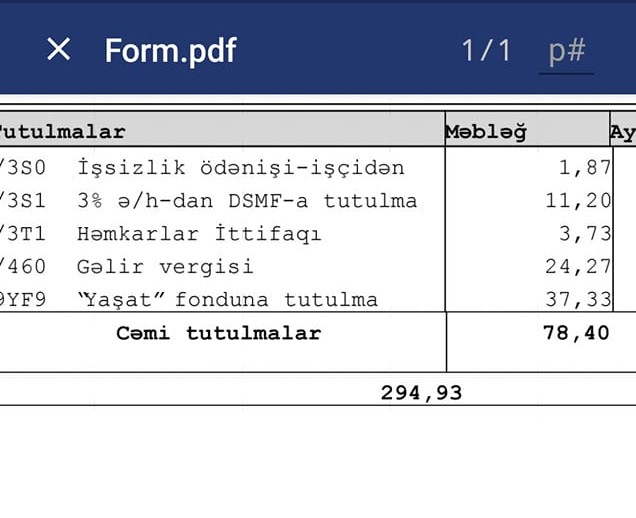
YASHAT, Azerbaijan’s state-backed fund for the support of the families of those wounded and killed during the second Nagorno-Karabakh war, has been marred by a number of allegations of forced donations.
On December 8, Azerbaijani President Ilham Aliyev signed a decree on the establishment of the YASHAT Foundation to support the families of those wounded and killed in the Second Karabakh War. Officially the fund’s source of money is voluntary donations and other sources not prohibited by law.
On 7 January, Azadlig Gazeti reported that employees of the Regional Water Department, which covers Gazakh, Tovuz, Agstafa, Gadabay and Shamkir districts, were forced to transfer money to the YASHAT Fund on a monthly basis.
Employees reportedly told the publication that staff at the company were forced to transfer 1% of their salary (about ₼6) to the fund every month for a year, and those who objected were obliged to give a formal explanation.
‘No one can force employees to donate to the fund’, a YASHAT employee told Microskop media after the allegations were made public. ‘Payments to the YASHAT fund are made on a voluntary basis. Donations to the fund depend on the individual’s wishes.’
‘Everything in YASHAT happens on a voluntary basis’, he stressed.
Mandatory donations at SOCAR
The largest alleged campaign of forced donations appeared to take place at SOCAR, Azerbaijan’s state-owned oil company and the largest company in Azerbaijan.
According to SOCAR’s official Facebook page, employees of the company’s head office transferred 10% of their salaries to the YASHAT Foundation, but many Facebook users are stating that not only the main office but all of the SOCAR employees have done so.
The chair of SOCAR’s state-backed trade union, Jahangir Aliyev, told Mikroskop Media that they have decided to transfer 10% of salaries to the fund, adding that were other ‘organisations’ in which employees transferred the entirety of their monthly salaries.
He explained that SOCAR has about fifty thousand employees and no mechanism to ask each one how much they want to donate. ‘We have resorted to this approach to resolve the issue massively and expeditiously’, he said.
Jahangir Aliyev said that the amount transferred from salaries to the fund is the same regardless of the position held by the employee: ‘If someone does not want to donate — say that I am not Azerbaijani, I do not want to give money — some people went and fought and were wounded, others were at work and survived. What could be the problem with donating 10% of your salary?!’
On 14 January, Isa Aliyev, who has claimed to be a SOCAR employee shared an income statement on Facebook which showed an automatic donation to the YASHAT Fund. He indicated that he learned about his ₼37.33 ($22) donation only on the day he received his salary, his net salary after all deductions summed up to ₼295 ($173.50).

A union for the state
Mirvari Gahramanli, Head of the Public Union Organization for the Protection of Oil Workers’ Rights, an independent workers’ rights watchdog, told OC Media that this an example of the SOCAR trade union covering for the illegal actions of the state. The forceful requisitioning of donations by the state or by state-owned companies is against Azerbaijan’s labour code. To square this circle, it is the trade union which steps in and delivers the appearance of a voluntary process collectively decided upon by the workers.
Trade unions, Gahramanli underlined, are supposed to be the body that protects these rights, but in this case, a trade union is explicitly involved in violating them. Nor has this been the only time.
‘There have been similar violations like donations made in order to support the army and COVID relief fund, additionally, a 1% payment to the trade union is being imposed as well’, he said.









